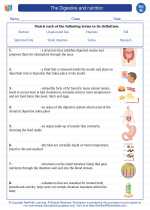The Brain
The brain is a complex and vital organ that serves as the center of the nervous system in all vertebrate and most invertebrate animals. It controls and coordinates actions and reactions, allows us to think and feel, and enables us to have memories and learn from our experiences.
Anatomy of the Brain
The human brain is divided into three main parts: the cerebrum, the cerebellum, and the brainstem. The cerebrum is the largest part and is responsible for higher brain functions such as thinking, perceiving, and planning. The cerebellum is located at the back of the brain and is involved in coordination and balance. The brainstem connects the brain to the spinal cord and controls basic functions such as breathing and heart rate.
Functions of the Brain
The brain performs a wide range of functions, including:
- Sensory processing: The brain receives and processes information from the senses, such as sight, hearing, taste, smell, and touch.
- Movement control: The brain coordinates voluntary and involuntary movements of the body.
- Emotion and behavior regulation: The brain plays a key role in regulating emotions and behaviors.
- Memory and learning: The brain stores and retrieves information, and enables us to learn from our experiences.
- Homeostasis: The brain helps maintain a stable internal environment by regulating bodily functions such as body temperature and metabolism.
Brain Disorders and Diseases
There are many disorders and diseases that can affect the brain, including:
Study Tips
Here are some tips for studying the brain:
- Understand the basic anatomy of the brain, including the different regions and their functions.
- Learn about the different types of brain disorders and their symptoms.
- Use diagrams and visual aids to help you understand the structure and function of the brain.
- Stay updated on the latest research and discoveries about the brain.
- Practice critical thinking and problem-solving to understand how the brain processes information and controls behavior.
[Brain] Related Worksheets and Study Guides:
.◂Science Worksheets and Study Guides Eighth Grade. The Digestive System & Nutrition

 Worksheet/Answer key
Worksheet/Answer key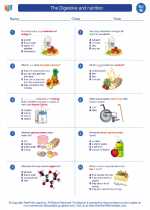
 Worksheet/Answer key
Worksheet/Answer key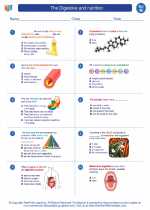
 Worksheet/Answer key
Worksheet/Answer key
 Vocabulary/Answer key
Vocabulary/Answer key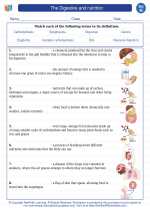
 Vocabulary/Answer key
Vocabulary/Answer key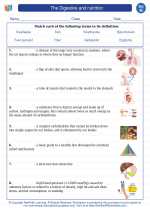
 Vocabulary/Answer key
Vocabulary/Answer key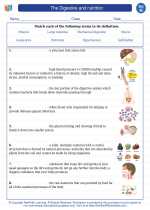
 Vocabulary/Answer key
Vocabulary/Answer key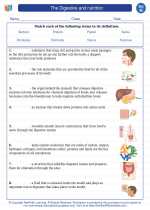
 Vocabulary/Answer key
Vocabulary/Answer key